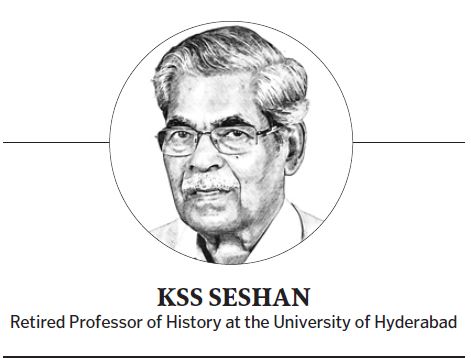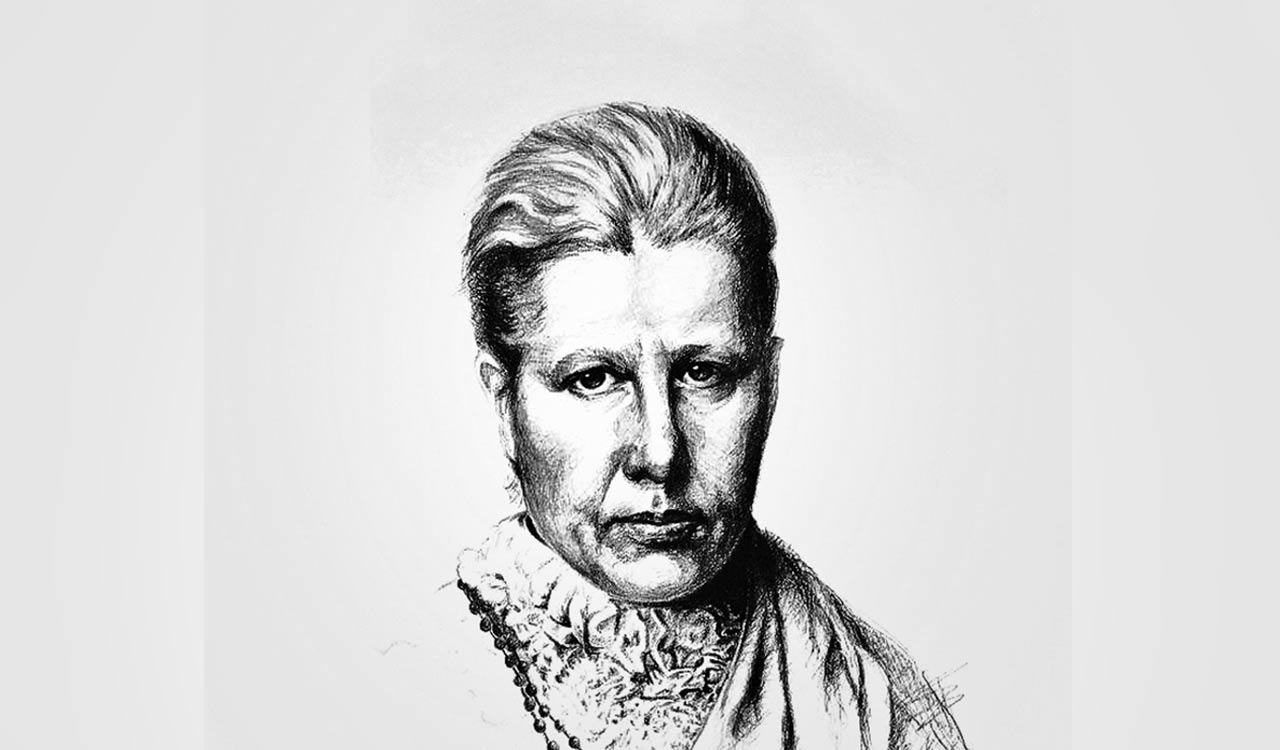No other person, except perhaps Mahatma Gandhi, served the cause of India with singleness of purpose as Annie Besant
Blurb: Through her institutions, Besant wanted to train the younger generation to feel proud of the glorious past of the country
Published Date – 11:45 PM, Thu – 5 October 23

By KSS Seshan
The present generation in our country may not fully realise the debt of gratitude that it owes to Dr Annie Besant for the selfless enthusiasm with which she relentlessly toiled to awaken the country she adopted as her own, and for the services she rendered in social, educational and political spheres of the country.
Dr Besant strode like a colossus and personified herself as a role model. Her Irish background enabled her to speak fearlessly against the then government. She established schools and colleges in India to impart not Western education but a system of education endowed with nationalist fervour; edited journals and newspapers to spread political consciousness among the masses; propagated the spirit of Theosophy, as according to her, it was the panacea for all religious dissension and helped people realise the greatness of India’s rich cultural past.
Born on 1 October 1847, to an Irish family in London, Annie Wood at the age of 20 married Frank Besant, a young clergyman. But soon she realised that they were an ill-suited pair; she being accustomed to freedom, indifferent to home details, impulsive, and he, with strong ideas of a husband’s authority and wife’s submission. As a young mother, Annie Besant struggled in bringing up the children and this struggle gradually transformed her from a devout Christian to an atheist. She began to be involved in social work, nursing the sick and helping the poor. She broke away from her husband in 1873.
Annie Besant joined the ‘Free Thought Society’ in 1874 and thus came into contact with its founder, Charles Bradlaugh. Being an atheist and separated from wife, it was alleged that Bradlaugh was an opponent of the institution of marriage. Besant joined the staff of the National Reformer on a small salary and began to write with a pen name, ‘Ajax’.
She joined the Fabian Society and worked with socialist stalwarts like Sidney Webb, George Bernard Shaw and Graham Wallas. They lectured at workmen’s clubs and agitated for an eight-hour day for industrial workers. By 1888, Annie Besant was drawn close to William Stead, the editor of ‘Pall Mall Gazette’ and on his suggestion, started ‘The
Link’, a weekly newspaper, whose objectives were to ‘speak about the poor’. A match-workers’ union was also started. A mammoth procession of match-workers led by Besant and Sidney Webb was taken to the House of Commons. For a very long time, she was the Secretary of this trade union, the strongest women’s trade union in England.
Service to Theosophy
A completely new turn in the life of Annie Besant happened when she was attracted to Theosophy. After reading the celebrated book, ‘The Secret Doctrine’ by Madame Blavatsky, she could not resist being drawn to the Theosophical ideals. The motto of the Society, ‘Truth above all religions’ appealed to her the most. She wrote later:
“I ask no other epitaph on my tomb but ‘She tried to follow the truth’”.
Besant formally became a member of the Theosophical Society in 1889 and plunged into the activities of the society headlong. The next year, Besant started the first branch of the Theosophical Society for Europe, the Blavatsky Lodge in London. Before Blavatsky’s death in 1891, she appointed Besant to succeed her as head of the Esoteric School that she headed hitherto. On Col Olcott’s death, in 1907, she was elected President of the Theosophical Society. She thus held both the offices till her death in 1933.
It was in November 1893 that Besant arrived in India. After attending the Parliament of Religions in Chicago where Swami Vivekananda made history by his address on Hinduism, and after a brief stopover in Sri Lanka, she reached India which for the rest of her life became her home.
As for Theosophy, she became almost the second founder of the Society. There is today no major town or city in south India where she did not start a branch of the Theosophical Society.
Education Blue Print
Besant started a number of educational institutions to impart true national education as against the Macaulay system that was carried by the government in the country. With the help of her trusted colleagues, GS Arundel and BP Wadia, she prepared ‘A BluePrint For National Education’. It is interesting to note that the use of cane was banned in the schools run by Besant. Through her institutions, she wanted to train the younger generation to feel proud of the glorious past of the country, its rich heritage and a deep sense of patriotism. The Hindu College she established in Varanasi, later under the aegis of Madan Mohan Malaviya grew into the present prestigious Banaras Hindu University. In Madras as well as in Sindh (now in Pakistan), she established a number of educational institutions.
Political Journey
Besant brought into Indian politics the twin engines of propaganda and publicity. She contributed to two great concepts with the progressive forces in the country. They were: the Home rule and the Principle of self-determination. The Home Rule Movement that she launched was marked with great activity everywhere. Women and students, in large numbers from all over the country, joined the movement. She instilled what may be called unbridled patriotism among the masses. She wanted people to believe that “ My nation is always right and it will never go wrong”. This was in fact the Romantic phase of Indian Nationalism she spearheaded. Inspired by the French revolutionary spirit, she taught Indians to respect culture, history, religions and civilisation.
In 1917, Besant was elected as the President of the Indian National Congress, the first woman to be elected. But, earlier that year, she faced governmental repression due to her Home Rule League and its activities. The newspapers she edited, ‘New India’ and ‘Commonweal’, were gagged. The deposits she had made were forfeited.
Her method to attain freedom for India was by well-organised constitutional agitation. She had learnt this lesson from her first leader, Charles Bradlaugh, with whom she collaborated on constitutional agitations in England. Her faith in the efficacy of such methods was so strong that when the Non-Cooperation Movement was launched, she preferred to part company with all her former Indian political friends, including Gandhi.
Dr Besant then turned more to social activities. She evinced great interest in student affairs. She organised Boys Scouts and
mock Parliaments, and opened libraries, reading rooms and debating societies. The credit for popularising Hockey in India rightly goes to her. She had a great affinity with the town Madanapalle in Andhra as it was the birthplace of Jiddu Krishnamurti, a great philosopher of the 20th century, whom she adopted as her son and even established a first-grade college there.
Besant was a mighty spirit, a crusader for human dignity, freedom and brotherhood. No other person, except perhaps Gandhi, worked and served the cause of India with that singleness of purpose, devotion and sincerity as Annie Besant.






